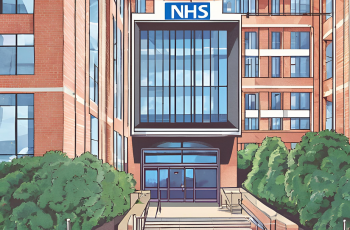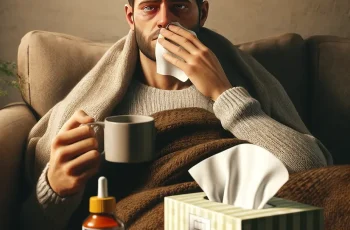The latest findings from the General Medical Council (GMC) underscore a severe crisis in the UK’s healthcare system, particularly highlighting the immense pressures faced by NHS doctors. The report paints a distressing picture of the working conditions, morale, and overall well-being of healthcare professionals across the country, revealing a workforce pushed to its limits by relentless demands and a healthcare system in critical condition.

According to the GMC’s research, nearly one-fifth of doctors have reduced their working hours in the past year, and two in five are refusing to take on additional responsibilities to avoid burnout. These statistics indicate a workforce that is not only exhausted but also deeply concerned about its ability to continue providing safe and effective care. The increasing workload has become a significant burden, with many doctors feeling that they are unable to cope with the demands placed upon them.
The report highlights that a third of doctors are “struggling” to manage the heavy workloads that have become the norm. This struggle often forces them to work beyond their contracted hours just to keep up with the overwhelming demand for care. For many, this situation transcends mere busy schedules; it reflects a harsh reality of surviving in a profession that increasingly feels unsustainable.
The consequences of this strain extend far beyond the individual well-being of doctors. Charlie Massey, the GMC’s chief executive, has warned that exhausted and overworked doctors pose a serious threat to patient safety. When healthcare professionals are pushed to their limits, the risk of errors increases, and the quality of care inevitably suffers. This alarming trend is a concern not only for doctors but also for the patients who depend on them for critical health services.
Doctors enter the profession with a commitment to help others and make a meaningful difference in their patients’ lives. However, the current state of the NHS raises serious questions about how effectively they can continue to fulfill this mission when they are running on empty. The GMC’s findings serve as a stark reminder that the crisis within the NHS is not just a problem for doctors; it is a crisis for the patients who rely on them.
Furthermore, the report underscores the growing disillusionment among doctors. Many express feelings of frustration and dissatisfaction with their roles, as illustrated by a GP’s poignant reflection: “I used to love my job. Now I absolutely hate it.” This sentiment encapsulates the emotional toll that working within the NHS is taking on many healthcare professionals. The joy and fulfillment that once characterized their careers are being eroded by a system that demands too much while providing too little in return.
It is not surprising that nearly half of the doctors surveyed plan to reduce their contracted hours in the coming year. This trend is particularly concerning given the already existing shortage of doctors in the NHS. The rise in doctors opting for locum positions or considering early retirement signals a clear desire among many to protect their mental and physical health, even if it means stepping back from full-time practice.
General practitioners (GPs) seem to be bearing the brunt of this crisis. The GMC report reveals that 28% of GPs have cut their hours, and nearly half are struggling to cope with the demands of their roles. As the first point of contact for patients, GPs face an ever-increasing workload as the NHS grapples with the growing need for care.
The reality for many GPs is bleak. They are often compelled to work longer hours, frequently on their days off, just to manage the sheer volume of patients. One GP described their experience: “Although I am contracted to work six four-hour sessions a week, I regularly work on my days off and average 10-12 hours a day, three days a week, plus maybe another four to eight hours on my ‘days off.’” This level of commitment is neither sustainable nor fair to those who dedicate their lives to this work.
The GMC report’s findings serve as a crucial call to action. The NHS is in a critical state, and those working within it are being pushed to their limits. The Labour government has described the NHS as “broken” after years of underinvestment, and it is clear that significant changes are needed to address this crisis effectively.
It is imperative for policymakers, healthcare leaders, and the public to recognize the gravity of this situation and take the necessary steps to protect both doctors and the patients they serve. The future of the NHS, and the quality of care it provides, depends on immediate and effective action to support healthcare professionals and ensure the sustainability of the healthcare system.

In summary, the GMC’s findings reflect a healthcare system at a breaking point, with doctors facing unprecedented challenges that threaten their well-being and the safety of their patients. Addressing these issues is vital not only for the health of the doctors but also for the integrity of the NHS and the quality of care available to the public. Without significant reforms and support, the crisis in the NHS will only deepen, jeopardizing the health of both doctors and patients alike.




